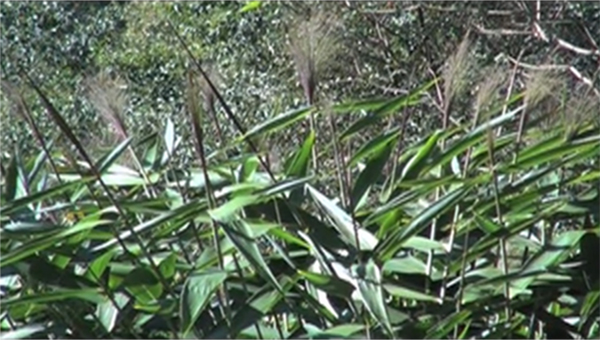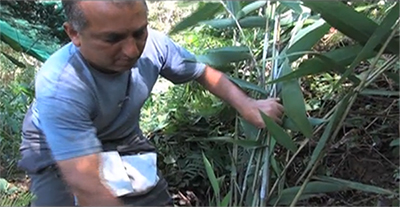 Villagers of Tashiling Maed (Bararay A) under Semjong Gewog in Tsirang that started the broom grass initiative are delighted with the encouraging results of their project.
Villagers of Tashiling Maed (Bararay A) under Semjong Gewog in Tsirang that started the broom grass initiative are delighted with the encouraging results of their project.
The broom grass plantation has not only made a difference in controlling landslides and erosion in the village but has also helped local communities with their livelihood.
Due to its strong web-like rooting system, broom grass helps prevent soil erosion and stabilizes slopes. It can regenerate quickly even in degraded land and does not require much work. As a result of its multi-purpose use, locals initiated an 18 member group called the Sarued-Kagthap Detshen and started the broom grass initiative in 2012.
“In 2009 we paved a new farm road and by 2010 the landslide became rampant. For almost a year the farm road remained blocked due to landslides. Then we had to do something to combat the landslides. Initially, our group was small. We drained out the groundwater properly and formed a group. We leased a private land below the road and started growing broom grass. Then it started to do the job. It sucked the water and the area became dry,” said Purna Bahadur Vista, the Chairman of Sarued-Kagthap Detshen.
“We harvest the broom when the flower gets matured. Then we dry it properly, we bundle it and then we sell them. The money that we get from the sale goes to our group’s account. We have learned that this grass prevents soil erosion and has a lot of other benefits,” added Indra Maya Saro, from Tashiling Maed in Tsirang.
 With its rich biodiversity, the non-wood forest products such as cane, bamboo, honey and incense among others have played a significant role in giving additional income to locals in Tsirang. And one such is broom grass. 68-year-old Dil Bahadur Raika grows broom grass in his two-acre land. Apart from dairy and poultry farm, he earns a good income from selling brooms.
With its rich biodiversity, the non-wood forest products such as cane, bamboo, honey and incense among others have played a significant role in giving additional income to locals in Tsirang. And one such is broom grass. 68-year-old Dil Bahadur Raika grows broom grass in his two-acre land. Apart from dairy and poultry farm, he earns a good income from selling brooms.
“Last year I sold 200 brooms and made a profit of Nu 15,000 from cultivating broom grass in the two-acre land that I own. In the beginning, I sold one broom for Nu 5 and it increased to Nu 10. Today a broom fetches Nu 40-50,” shares Dil Bahadur Raika, from the same village.
The United Nations Development Programme small grant project helped the group with financial assistance. The group has planted broom grass in about 15 acres of land with technical assistance from the Tsirang forest division. Brooms are harvested when it matures during the winter season.
Namgay Wangchuk












